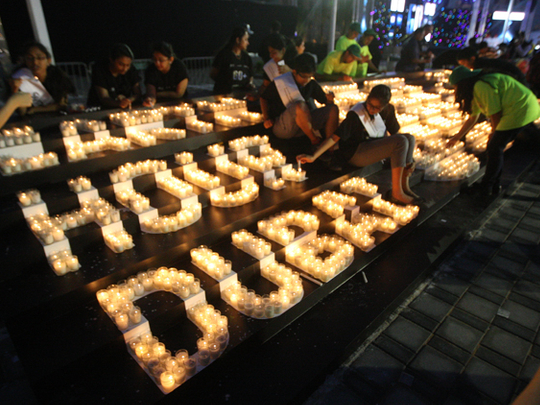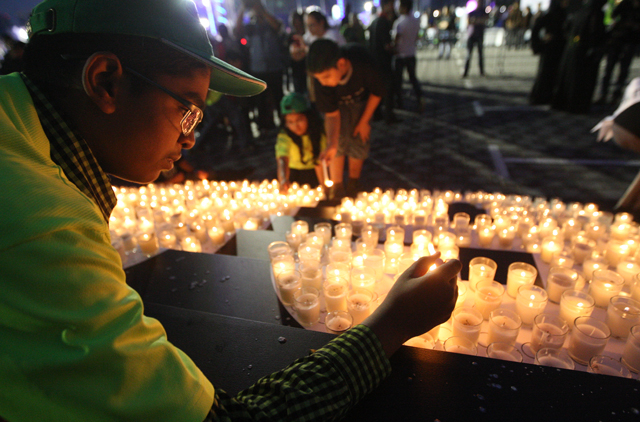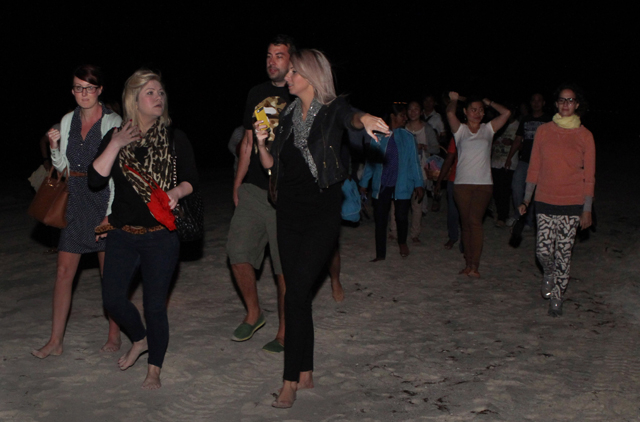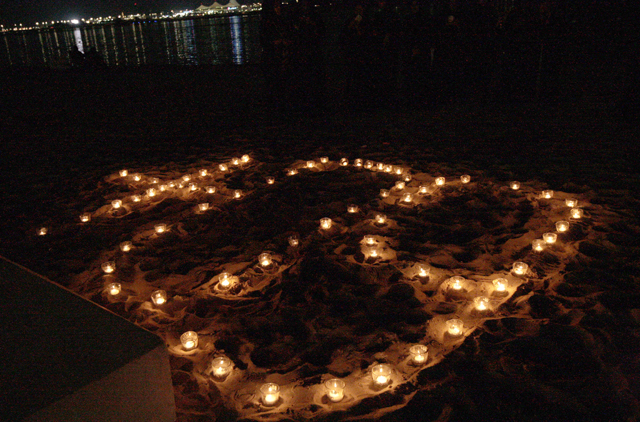
Dubai: As the clock struck 8.30pm on Saturday, people from all walks of life participated in the Earth Hour Walk led by Saeed Mohammad Al Tayer, Dewa’s managing director and CEO, and other senior government officials.
Landmarks such as the Burj Khalifa and Shaikh Zayed Grand Mosque switched off their external lighting between 8.30pm and 9.30pm to mark Earth Hour, the world’s largest environmental action on climate change.
The main ceremony in Dubai was held at the Bay Avenue Park in Downtown Dubai. In Sharjah, Earth Hour was marked at the Sharjah Museum.
Many residents went beyond the traditional dimming of lights for 60 minutes for Earth Hour yesterday and made tangible changes such as switching to energy-efficient lighting.
On the eve of Earth Hour, Emirates Wildlife Society-World Wildlife Fund for Nature (EWS-WF), the co-organiser of Earth Hour UAE, had encouraged residents to replace conventional light bulbs with energy-efficient lighting such as CFLs (Compact Fluorescent Lamps), Light Emitting Diodes (LEDs) and halogen lamps.
The switch could mean at least 80 per cent energy savings.
Thulas Ajith, a mother of two from Kerala, said they have replaced conventional light bulbs with CFLs. They also save water and recycle old newspaper.
“The whole family is involved in supporting Earth Hour. We’ve been doing this for three years. But now we’ve switched to energy efficient lighting,” Ajith said.
Kehkashan Basu, Global Coordinator for Children and Youth, UN Environment Programme and head of the youth group Green Hope, said: “all of our more than 50 members have switched to energy-efficient lighting at home. It wasn’t hard to convince our parents to make the switch.”
Based on an EWS-WWF study, some 940,000 tonnes of carbon dioxide (CO2) emissions can be reduced annually if all homes in the UAE switched to energy-efficient lighting, equivalent to removing 165,000 cars off the road every year.
In 2013, Dubai residents saved around 200,000kWh by switching off their lights, which is roughly equivalent to 120,000kg of carbon emissions, according to Dubai Electricity and Water Authority figures.
Much has changed since the UAE celebrated Earth Hour for the first time in 2008, according to Reem Al Thawadi, Communications Manager at EWS.
What was then a one-city lantern-lit public event at the Jumeirah Beach Residence has grown into a nationwide campaign with major landmarks participating.
Private and public institutions have also gone beyond the one-hour tradition and are conducting year-round campaigns not only to save energy but also water. Majid Al Futtaim shopping malls, for example, have been taking part in the movement for the past three years by promoting energy-saving practices to reduce energy demand.
For the fifth year in a row, unnecessary controlled lights were switched off at Jebel Ali, DP World, and UAE Region Terminals on Saturday. Last year, Jebel Ali Port replaced the lighting system in its 175-hectare terminals with a custom-designed Green Generation Lighting system.















